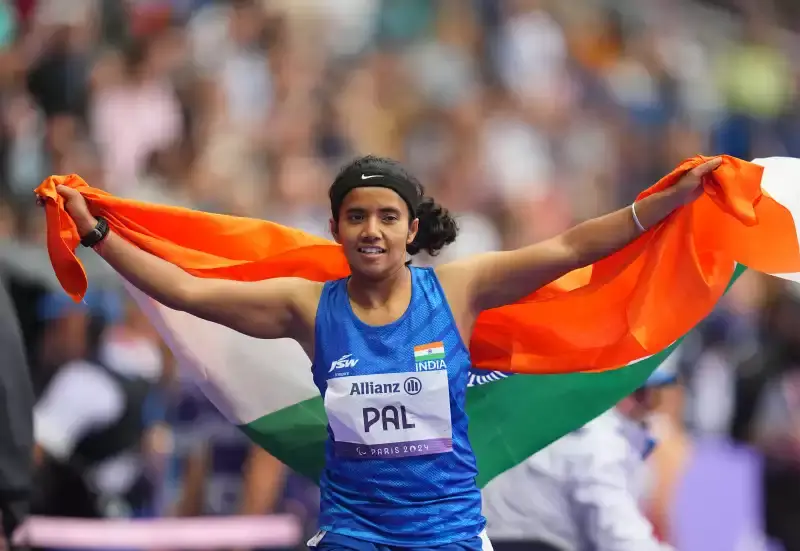The Paralympic Games celebrate athletes with disabilities, showcasing their strength and skill. Sponsorship makes these events possible, providing money for training, venues, and promotion. But it’s not just about cash—it’s about values and the Shifts in Sponsorship Diversity. Sponsors must support inclusion and fairness, core Paralympic ideals.
In recent years, sponsorship diversity and ethics in Paralympic Events have shifted. More companies from different fields and countries are joining in. Ethical standards are rising, with sponsors chosen for their commitment to social good.
This article explores these changes, from past trends to future possibilities, showing how sponsorship shapes the Paralympic Movement.
Historical Perspective on Paralympic Sponsorship

In the early days, Paralympic Events had little sponsorship. Governments and small donors provided most funds. Visibility was low, and big companies stayed away. Things began to change with key moments:
-
1992 Barcelona Paralympics: Major sponsors started to notice, bringing more money and attention.
-
2012 London Paralympics: A game-changer, these Games drew huge crowds and new sponsors, boosting the Paralympics’ profile (Paralympic.org).
-
2018 IPC-IOC Agreement: From 2021, top Olympic sponsors, like Coca-Cola and Visa, also backed the Paralympics, increasing funds (Inside the Games).
Money from sponsorship grew fast:
-
2008: €6.4 million
-
2012: €10.3 million
-
2016: Nearly €20 million (Inside the Games)
These shifts show growing interest in the Paralympics, setting the stage for more diverse and ethical sponsorship and gender equality.
Current State of Sponsorship Diversity
The 2024 Paris Paralympics highlighted a diverse sponsor lineup. Twelve major partners included:
-
Technology: Samsung, Alibaba
-
Finance: Visa, Deloitte
-
Consumer Goods: Coca-Cola Mengniu, P&G
-
Medical Devices: Ottobock
-
Others: ABInBev, Airbnb, Allianz, Omega, TCL (Paralympic.org)
These sponsors come from different industries, showing strong diversity. Most are global companies, reaching fans worldwide. Compared to earlier Games, like 2008, the variety of sponsors has grown especially after the increased Indian Medal Tally, thanks to the 2018 IPC-IOC deal. This agreement brought in big names, making Paralympic sponsorship more like the Olympics (ISPO).
Ethics in Paralympic Sponsorship
Ethical sponsorship means picking partners who share Paralympic values, like inclusion and accessibility. The International Paralympic Committee (IPC) chooses sponsors who help athletes, raise awareness, and promote social good (Paralympic.org). Examples include:
-
Ottobock: Makes prosthetics, directly helping athletes (ISPO).
-
Toyota: Runs campaigns like “Start Your Impossible,” celebrating Paralympians (Sports Business Journal).
However, ethical concerns can arise. Some sponsors might have practices, like poor labor records, that clash with Paralympic ideals. The IPC works to ensure partners align with its mission, but no specific controversies were noted in recent Games. This careful selection makes Paralympic sponsorship a model for ethical partnerships.
Case Studies
Positive Examples
-
Citi’s “Stare at Greatness”: This campaign focused on Paralympians’ skills, not disabilities, boosting their visibility (Digiday).
-
Toyota’s “Start Your Impossible”: Featured Paralympians and promoted inclusion, aligning with Paralympic values (Sports Business Journal).
Potential Concerns
No major sponsorship scandals have hit recent Paralympics. But the IPC must stay vigilant, avoiding partners with questionable ethics, like those ignoring disability rights. This ensures sponsorship stays true to Paralympic goals.
Challenges and Opportunities

Challenges
-
Perception of Risk: Some companies see Paralympics as less visible than the Olympics, hesitating to sponsor (Money Smart Athlete).
-
Awareness Gap: Smaller businesses may not know about Paralympic sponsorship opportunities.
Opportunities
-
Growing Interest: Brands are seeing value in Paralympics, especially after 2012 and 2024 (Creativebrief).
-
Social Media: Athletes’ stories on platforms like X amplify sponsorship impact (Marketplace).
Future Outlook
By 2028, Paralympic sponsorship is likely to grow even more diverse. Smaller businesses and local companies may join global giants. Sustainability could become a focus, with sponsors promoting eco-friendly practices. Ethical standards will likely tighten, ensuring all partners support inclusion and accessibility. The 2028 Los Angeles Paralympics could set new benchmarks for diverse and ethical sponsorship (Olympic Analysis).
Conclusion
Sponsorship diversity and ethics in Paralympic Events have come a long way. From limited funds to global partnerships, the Paralympics now attract diverse sponsors who share its values. Ethical practices ensure these partnerships uplift athletes and fans. As we look to 2028, stakeholders must keep pushing for inclusive and responsible sponsorship to make the Paralympics shine brighter.

